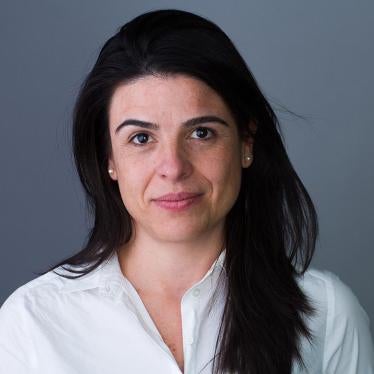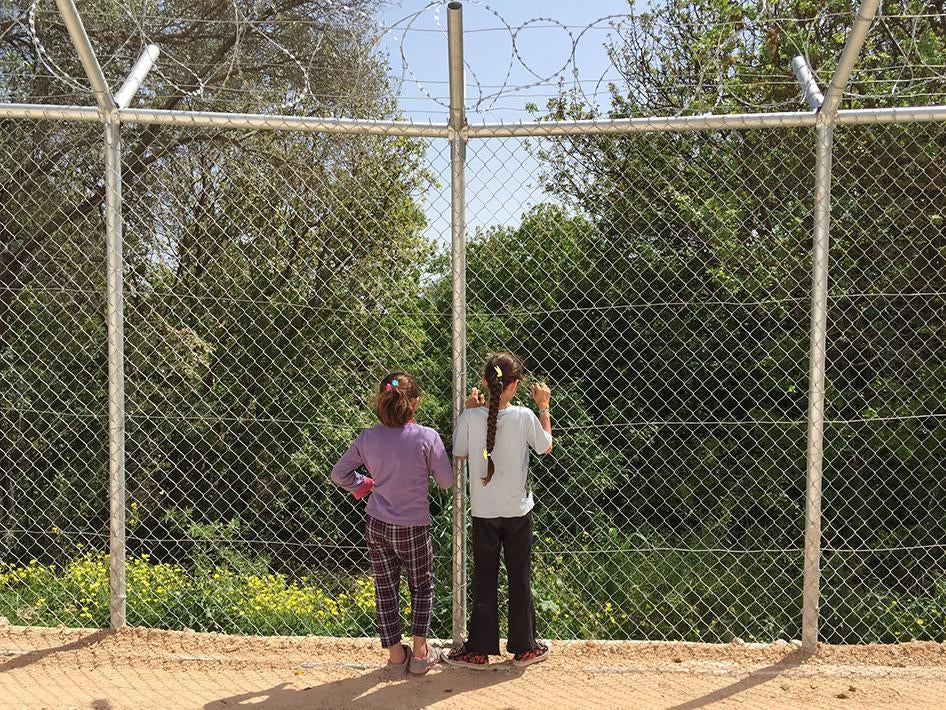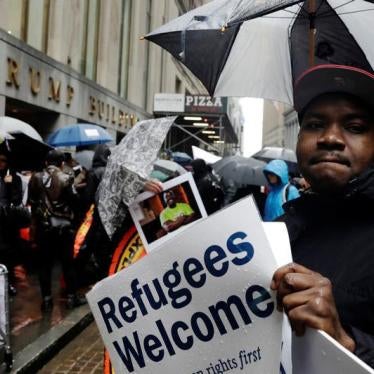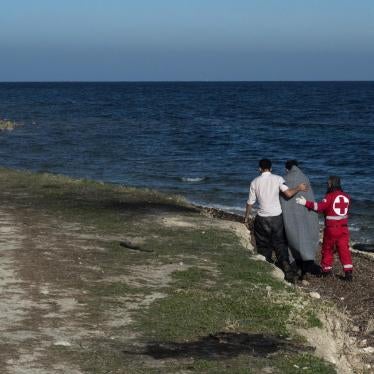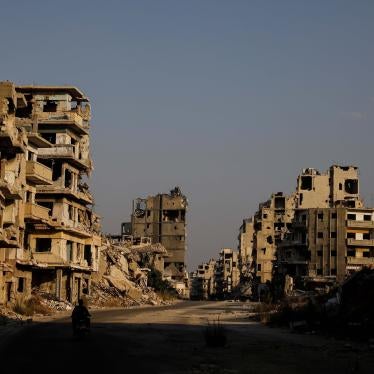Last October I visited camps for asylum seekers and migrants on the Greek islands, the landing spot in recent years for hundreds of thousands of people who abandoned everything in search of safety.
As I was waiting to get into the VIAL camp on Chios Island, a boy in ragged jeans called to me from the doorway of a bus. “Give up!” he said. “Do not waste your time. Nothing is going to change.” The door closed and the rickety bus bumped slowly away from the asylum processing center and into the heart of the camp.
It wasn’t what I expected to hear. VIAL is a place where asylum seekers are interviewed as part of a process that should, in the best of worlds, allow them a fair shot at finding refuge in a European country. But given the border closures along the Balkan route and deeply flawed EU deal signed with Turkey, it had become a dead-end.
The boy on the bus who was urging me to give up had told me at the processing center that he’d fled Afghanistan to avoid pressures to join the Taliban or the military. He was 15, and he’d spent two years on his own, working his way across Iran, Iraq, and Turkey, in the dicey world of the undocumented, like many other unaccompanied children in search of safety and a better future. He didn’t know whether his family back home was dead or alive.
During the following days, I met many children--from Syria, Afghanistan, Iraq, and Somalia—who, like the boy on the bus, felt stuck. They huddled together listlessly, without any chance to get proper schooling or work, ticking off the hours, days, weeks, and months until their refugee status might be recognized and their destinies defined.
Others have been luckier. At the beginning of May, I met members of the Majid family, including children ranging in age from 6 to 11. They fled Aleppo, Syria in 2015 and traveled for two months, crossing nine European countries, dealing with hostile border guards, barbed wire fences, hunger, rain, and sleep deprivation, until they finally reached Sweden, which gave them a new home. They were in Sao Paulo to honor the Pulitzer Prize-winning photo exhibition of their journey by the Brazilian New York Times photographer Mauricio Lima.
In Sweden, the children have been rediscovering normal life: playing, going to school, competing in soccer. They have become fluent in Swedish. For them at least, memories of the Syrian war—in which more than 400,000 have died, 12 million have fled their homes, and the government has systematically used chemical weapons—may be fading. In such tragic times, more countries need to embrace families like the Majids. Worldwide, nearly 65 million people have been displaced by war or persecution – a number unmatched since World War II.
Brazil´s response to the refugee crisis, so far, has been disappointing. The current largest refugee group worldwide is the Syrians, and Brazil has taken in only 3,000 of them. It´s true that accepting refugees and ensuring that they can integrate into a new society requires investing resources, especially when the refugees come from a distant culture and don’t speak Portuguese. But Brazil could seek funding and assistance from the private sector, United Nations agencies, and donor countries to enhance its capacity—and our well-established Syrian and other ethnic communities could facilitate integration.
Brazil has opened its door to refugees before. We took in tens of thousands of Europeans after the two World Wars. Many of them showed us that foreigners in search of a life free from fear can make invaluable contributions to their host countries.
